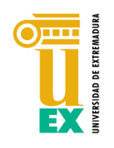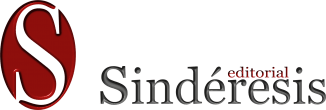Legal hermeneutics from a philosophical perspective
Keywords:
Hermeneutics, Law, done, activity, interpretation, Bayesian inferenceAbstract
In this paper we start from hermeneutics not so much as a specific philosophical method, but rather as the inherent tool of every human act, especially in decision-making. Law implies decision-making both in the legislative exercise and in judicial practice. But human interpretation always generates a state of uncertainty, by giving the impression that it is a private act of objectivity, more typical of science, which has led to the search for a paradigm in law that is scientific and has often been identified with logical positivism (empiricism). The philosophical perspective that we propose is that of the analysis of the very inherent nature of the interpretative act, since neither data, nor the subject, nor science can be reduced to mere data and facts, without taking into account not only the context of justification, but also that of discovery and the sociological perspective. To this we add the new perspectives of neuroscience and cognitive psychology based on Bayesian inference that shows, in turn, how sensory perception is read by the brain from a cultural and historical context of its own that is capable of projective thinking. This implies that analytical reasoning and deductive and empirical logic are not sufficient when analyzing data that are never read in a neutral (raw) way. In conclusion, the best way to avoid uncertainty is not to close our eyes to the evidence of interpretation, but to face it with tools such as hermeneutics.
Downloads
References
Álvarez, Juan Ramón. “La filosofía de la ciencia «entre» la epistemología y los estudios (socio)culturales”. En Filosofía actual de la ciencia. Editado por Pascual F. Martinez-Freire, 59-79. Málaga: Publicaciones Universidad de Málaga, 1998.
Arias, José A. “La fenomenología, un pensar radical (Reflexiones acerca de la distinción husserliana entre “natürliche Geisteshaltung” y “philosophisches Denken”)”. Anales del seminario de historia de la filosofía 1 (1980): 121-152.
Ascher, Edgar. “Problèmes Du Relativisme”. Revue Européenne Des Sciences Sociales 27 (1989): 87-122.
Bastit, Michel. “La justice générale selon saint Thomas : une politique de la félicité”. Revue thomiste 114 (2014): 129-142.
Brooke, John H. “Ciencia, religión y unificación de la naturaleza”. Pensamiento 61 (2005) 147-156.
Busino, Giovanni. “La preuve dans les sciences sociales” Revue européenne des sciences sociales 41 (2003): 11-61
Canals, Mauricio. “Bases científicas del razonamiento clínico: inferencia Bayesiana”. Revista médica de Chile 147 (2019): 231-237.
Carnap, Rudolf. “The Elimination of Metaphysics. Throigh Logical Analysis of Language”. En Logical positivism. Editado por A. J. Ayer, 60-81. Glencoe, Il, London: The Free Press, Simon and Schuster, 1959.
—. The Logical Structure of the World. Pseudoproblems in Philosophy. Berkeley, CA: University of California Press, 1969.
—. “Logical Foundation of the Unity of Science”. En Encyclopedia and Unified Science. Vol. 1, nº 1. Editado por Otto Neurath, Chicago, Ill: The University of Chicago Press, 1938.
Cicerón, Marco Tulio. De Re Publica, 2, 1.2. (Cambridge: Harvard University Press, 1961).
Cumyn, Michelle, Mélanie Samson. “La méthodologie juridique en quête d'identité”. Revue interdisciplinaire d'études juridiques 71 (2013): 1-42. doi https://doi.org/10.3917/riej.071.0001
Doing, Park. “‘Lab Hands’ and the ‘Scarlet O’: Epistemic Politics and (Scientific) Labor”. Social Studies of Science 34 (2004): 299-323.
Duhem, Pierre. Sozein ta phainomena. Essai sur la notion de théorie physique de Platon à Galilée. Paris: Hermann, 1908.
Echeverría, Javier. Introducción a la Metodología de la Ciencia: la Filosofía de la Ciencia en el siglo XX. Barcelona: Barcanova, 1989.
—. “Tecnociencias, capacidades de acción y valores”. Paradoxa 10 (2003) 107-135.
Feyerabend, Paul. Contra el método. Barcelona: Ariel, 1989.
Gadamer, Hans-Georg. Wahrheit und Methode. Grundzüge einer philosophischen Hermeneutik. Tübingen: J.C.B. Mohr, 1975.
Garrido, Manuel J. “Capítulo 1. Los orígenes y la Historia del Derecho”. En Manuel J. Garrido et al. Nociones Jurídicas Básicas. Versión actualizada, 15-33. Madrid: Editorial Universitas, 2012.
Geslin, Albane. “L’importance de l’épistémologie pour la recherche en droit”. En La recherche juridique vue par ses propres acteurs [en línea], dirigido por Bertrand Sergues. Toulouse: Presses de l’Université Toulouse, 2016. Consultado el 15 de diciembre de 2018. http://books.openedition.org/putc/956. doi: 10.4000/books.putc.956.
Gödel, Kurt. “Über formal unentscheidbare Satze der Principia Mathematica und verwandter Systeme”. Monatshefte für Mathematik und Physik 38 (1931): 173-198.
—. “Einige mctamathematische Resultare über Entscheidungsdefinitheit und Widerspruchsfreiheit”. En Kurt Gödel, Colleted Works (vol. I, Publications 1929-1936). Edición dirigida por Solomon Feferman, 141-143. New York, Oxford: Oxford University Press, 1986.
—. “Über formal unentscheidbare Satze der Principia Mathematica und verwandter Systeme”. En Kurt Gödel, Colleted Works (vol. I, Publications 1929-1936). Edición dirigida por Solomon Feferman, 144-195. New York, Oxford: Oxford University Press, 1986.
Goodrich, Peter. “Legal hermeneutics”. En Routledge Encyclopedia of Philosophy Online, editado por Edward Craig, Tim Crane. Londres, Nueva York: Routledge 1998. Consultado el 25 de febrero de 2019. doi: 10.4324/9780415249126-T016-1.
Habermas, Jürgen. Conocimiento e interés. Madrid: Taurus, 1982.
Hacking, Ian. Representing and Intervening. Introductory Topics in the Philosophy of Natural Science. Cambridge: Cambridge University Press, 1983.
—. “The Disunities of the Sciences”. En The Disunity of Science. Editado por por Peter Galison, David J. Stump, 109-135. Stanford: Stanford University Press, 1996.
—. ¿La construcción social de qué?. Barcelona: Paidós, 2001.
Harding, Sandra. Whose science? Whose knowledge? Thinking from women’s lives. Ithaca: Cornell University Press, 1991.
Hart, Herbert L.A. The Concept of Law. Edición de Postscrip por Penelope A. Bulloch y Joseph Raz. Introducción y nototas por Leslie Green, 3ª ed. Oxford: Oxford University Press, 2012
Hayek, Friedrich A. von. The Counter-Revolution of Science: Studies on the Abuse of Reason. Glencoe, Ill.: Free Press, 1952.
Heidegger, Martin. Sein und Zeit. Editado por Friedrich-Wilhelm von Herrmann. Frankfurt am Main: Vittorio Klostermann, 1977). [Heidegger-Gesamtausgabe, Bd. 2, Abt. 1, Veröffentlichte Schriften 1914–1970].
Hempel, Carl. G. Fundamentos de la formación de conceptos en ciencia empírica. Madrid: Alianza, 1988.
Hölderlin, Friedrich. Correspondencia completa. Madrid: Hiperion, 1990.
Husserl, Edmund. La crisis de las ciencias europeas y la fenomenología transcendental. Barcelona: Crítica, 1991.
Isaac, Jean. Le Peri hermeneias en occident de Boèce à Saint Thomas. Histoire littéraire d'un Traité d'Aristote. Prais: Vrin, 1953.
Kaufmann, Arthur. “Entre el iusnaturalismo y positivismo hacia la hermenéutica jurídica”. Anales de la Cátedra Francisco Suárez 50 (2016): 133-142.
Kelsen, Hans. Reine Rechtslehre. Einleitung in die rechtswissenschaftliche Problematik. Editado por Matthias Jestaedt, sobre la primera edición de 1934. Tübingen: Mohr Siebeck, 2008.
Kerlinger, Fred N. Investigación del comportamiento. Técnicas y metodología. México: Interamericana, 1975.
Kogo, Naoki, ChrisTrengove. “Is predictive coding theory articulated enough to be testable?”. Frontiers in Computational Neuroscience 9 (2015): article 111. Consultado el 6 de febrero de 2019. doi: 10.3389/fncom.2015.00111.
Kuhn, Thomas S. The Structure of Scientific Revolutions. Chicago, Ill: University of Chicago Press, 1962.
—. Segundos pensamientos sobre paradigmas. Madrid: Tecnos, 1978.
Lakatos, Imre. Historia de la ciencia y sus reconstrucciones racionales. Madrid: Tecnos, 1974.
Lázaro, Manuel. “Ciencia y religión: ¿es posible el diálogo? respuesta desde la filosofía”, Naturalea y gracia 52 (2005): 527-568.
La Torre, Massimo. “Le modèle hiérarchique et le Concept de droit de Hart”. Revus 21 (2013): 117-139.
Le Moigne, Jean-Louis. Les épistémologies constructivistes. Paris: PUF, 2007.
López Cerezo, José Antonio, Javier Sanmartín, Marta Isabel González. “El estado de la cuestión. Filosofía actual de la ciencia”. Diálogo Filosófico 29 (1994): 164-208.
Losee, John. Introducción histórica a la filosofía de la ciencia. Madrid: Alianza Universidad, 1987.
Mach, Ernst. Die Mechanik in ihrer Entwicklung. Leipzig, F. A. Brockhaus, 1883.
Maloney, Laurence T., Hang Zhang. “Decision-theoretic models of visual perception and action”. Vision Research 50 (2010): 2362-2374.
Merton, Robert K. La sociología de la ciencia. Madrid: Alianza Editorial, 1977.
Moulines, C. Ulises. Pluralidad y recursión. Estudios epistemológicos. Madrid: Alianza Editorial, 1991.
Mumford, David. “On the computational architecture of the neocortex. II. The roleofcortico-cortical loops”. Biological Cybernetics 66 (1992): 241–251.
Muñoz de Baena, José Luis, José Carlos Muinelo (coords.). Filosofía del Derecho. Lecciones de hermenéutica jurídica. Madrid: UNED – Sindéresis, 2019.
Negretto, Gabriel L. “¿Qué es el decisionismo? Reflexiones en torno a la doctrina política de Carl Schmitt”. Revista Mexicana de Ciencias Políticas y Sociales 40 (1995): 49-74.
Orgaz, Arturo. Diccionario de Derecho y Ciencias Sociales (Córdoba: Ed. Assandri, 1961).
Otero, Edison. “El «Programa Fuerte» en sociología de la ciencia y sus críticos, Revista austral de ciencias sociales 2 (1998): 89-94.
Pascal, Blaise. Pensées. Editado por Louis Lafuma. Paris: Seuil, 1978.
Pasquier, Emmanuel. De Genève à Nuremberg. Carl Schmitt, Hans Kelsen et le droit international. Paris: Editions Classiques Garnier, 2012.
Peña, José (coord.). Carl Schmitt y el decisionismo jurídico. Madrid: Fundación Universitaria San Pablo CEU, 2015.
Pierron, Jean-Philippe. “Une herméneutique en contexte : le droit”, Methodos [On line] 13 (2013), consultado el 5 de febrero de 2019, doi: 10.4000/methodos.3040.
Poincaré, Henri “Sur la valeur objective de la science”, Revue de métaphysique et de morale 10 (1902): 263-293.
—. La Valeur de la science. Paris: Flammarion 1905.
—. La Science et l’Hypothèse. Paris: Flammarion 1917.
Popper, Karl. R. La lógica de la investigación científica. Madrid: Tecnos, 1985.
Porlán, Rafael. Constructivismo y escuela. Madrid: Díada Editora, 1995.
Principe, João. “Sources et nature de la philosophie de la physique d’Henri Poincaré”. Philosophia Scientiæ 16 (2012): 197-222. doi: 10.4000/philosophiascientiae.749
Putman, Hilary W. “What Theories are Not”. En Logic, Methodology and Philosophy of Science. Proceeding of the 1960 International Congress. Editado por Ernest Nagel, Patrick Suppes, Alfred Tarski, 240-251. Stanford, CA: Stanford University Press, 1962.
Quéré, Louis. “8. Sciences cognitives et herméneutique “. En Paul Ricœur et les sciences humaines. Editado por Christian Delacroix, François Dosse et Patrick Garcia, 145-165. Paris: La Découverte, 2007.
Rabault, Hugues. “Le problème de l’interprétation de la loi : la spécificité de l’herméneutique juridique”. Le Portique. Revue de philosophie et de sciences humaines 15 (2005). Consultado el 3 de marzo de 2019, URL: http://journals.openedition.org/leportique/587.
Rao, R. P., D. H. Ballard. “Predictive Coding in the Visual Cortex: A Functional Interpretation of Some Extra-Classical Receptive Field Effects”. Nature neuroscience 2 (1999): 79-87. doi:10.1038/4580.
Rodrigo de Larrucea, Jaime. La investigación en seguridad. Del Titanic a la ingeniería de la resiliencia. Barcelona: Marge Books, 2018.
Romano, Claude. “Anscombe et la philosophie herméneutique de l'intention”. Philosophie 80 (2004), 60-87.
Salmon, Wesley C. Four Decades of Scientific Explanation. Minneapolis: University of Minnesota Press, 1989.
Schmitt, Carl. Politische Theologie Vier Kapitel zur Lehre von der Souveränität. München und Leipzig: Duncker & Humblot, 1922.
Schleiermacher, Friedrich Daniel Ernst. Sämtliche Werke. Berlín, Reiner, 1835-1864.
—. Hermeneutik und Kritik. Frankfurt a. M.: Suhrkamp, 1977.
Taylor, Charles. La liberté des modernes. Paris: PUF, 1987.
Trillas, Enric, Claudi Alsina, Josep-Maria Terricabras, Introducción a la lógica borrosa. Madrid, Ariel, 1995.
Varios, Reexamen del neopositivismo. VI Encuentro de la Sociedad Castellano-Leonesa de Filosofía, 8-10 de noviembre de 1990. Salamanca: Sociedad Castellano-Leonesa de Filosofía 1992.
Verley, Xavier. Poincaré ou le renouveau de la philosophie naturelle. Paris: Les Belles Lettres, 2009.
Viala, Alexandre. “Le positivisme juridique : Kelsen et l'héritage kantien”. Revue interdisciplinaire d'études juridiques 67 (2011): 95-117. doi: https://doi.org/10.3917/riej.067.0095
Wacongne, Catherine, Jean-Pierre Changeux, Stanislas Dehaene. “A Neuronal Model of Predictive Coding Accounting for the Mismatch Negativity”. Journal of Neuroscience 32 (14 March 2012): 3665-3678. doi: https://doi.org/10.1523/JNEUROSCI.5003-11.2012
Wroblewski, Jerzy. “Les langages juridiques : une typologie”. Droit et société 8 (1988) 13-27.
Downloads
Published
Issue
Section
License
Since November 2024 this journal is licensed under CC-BY-NC 4.0








.png)




